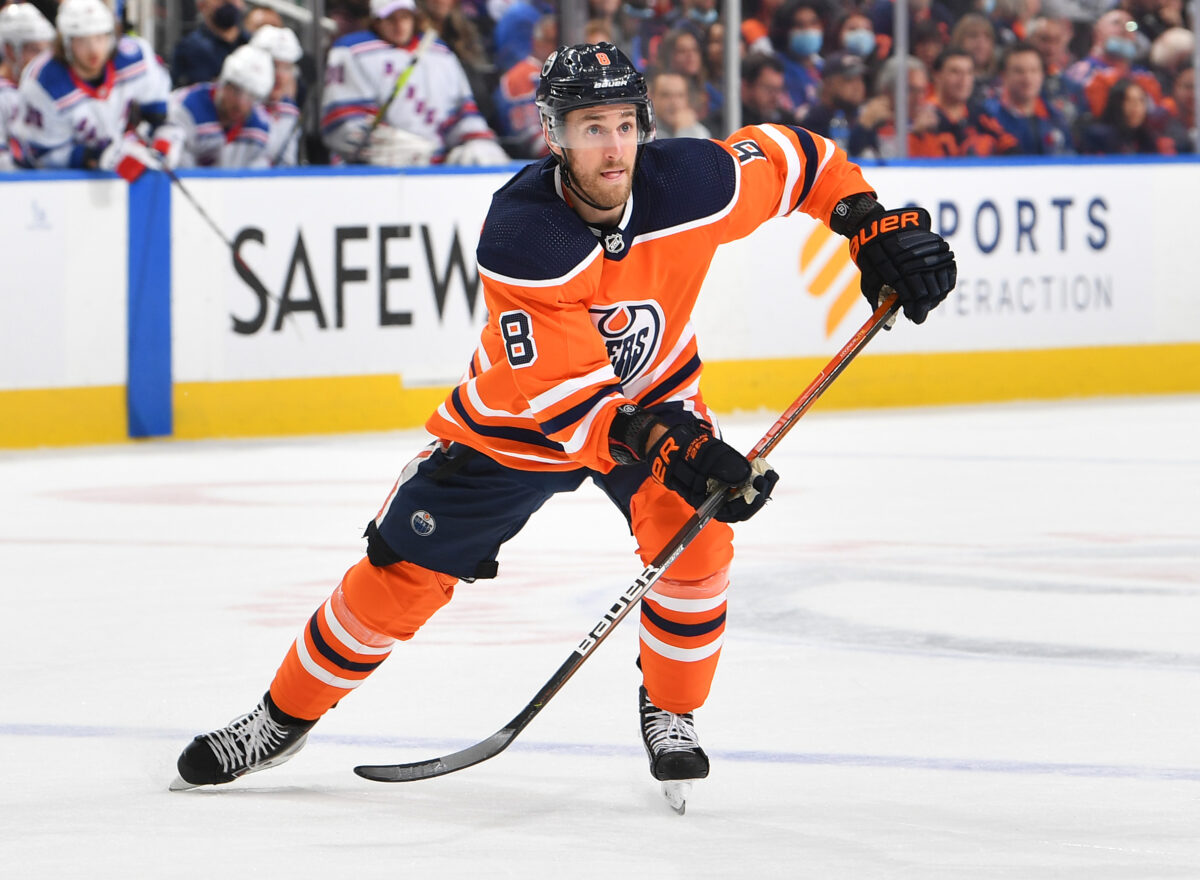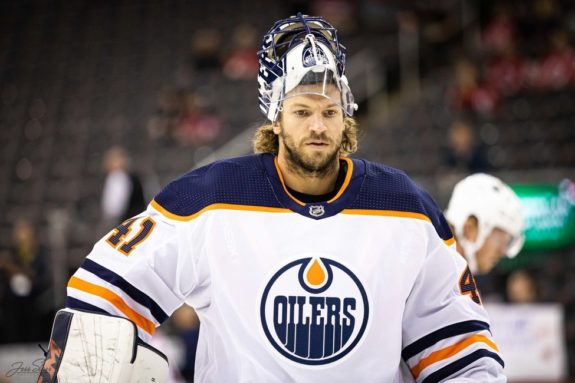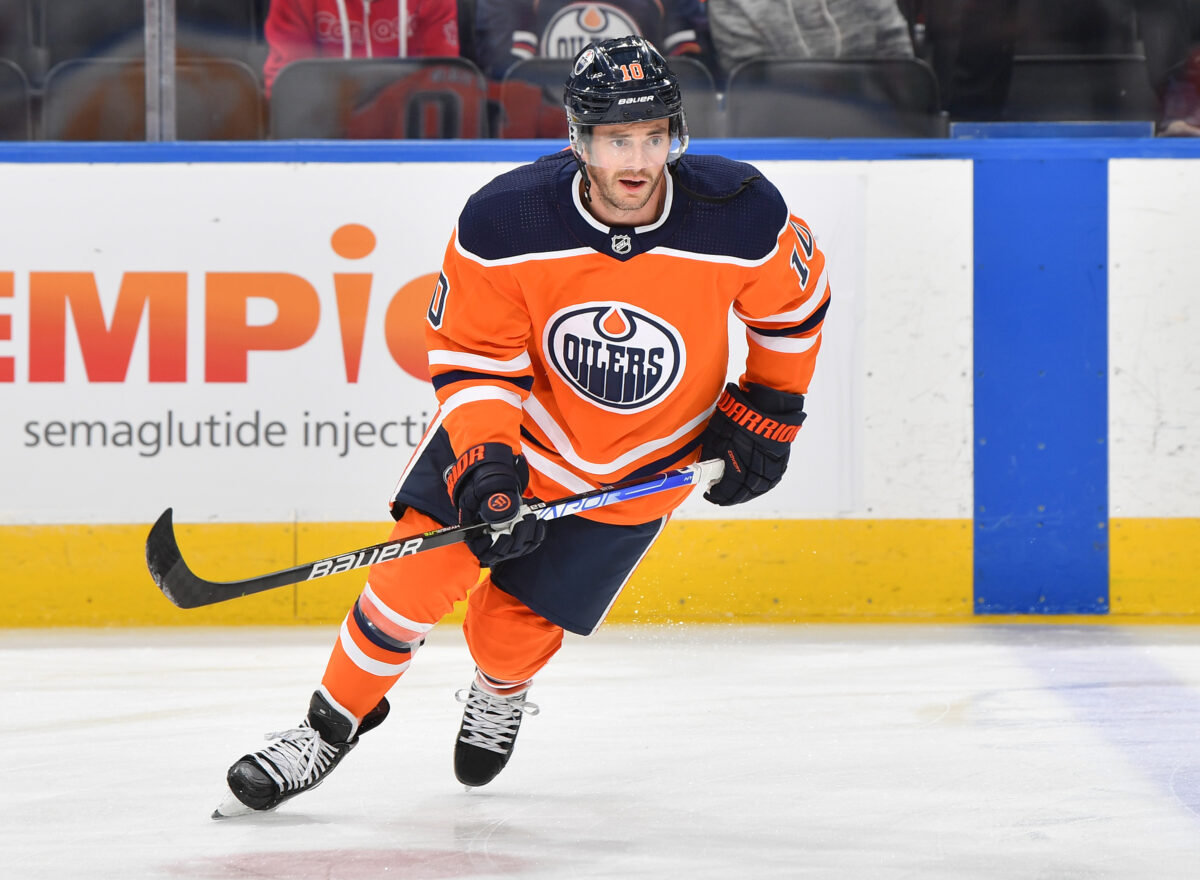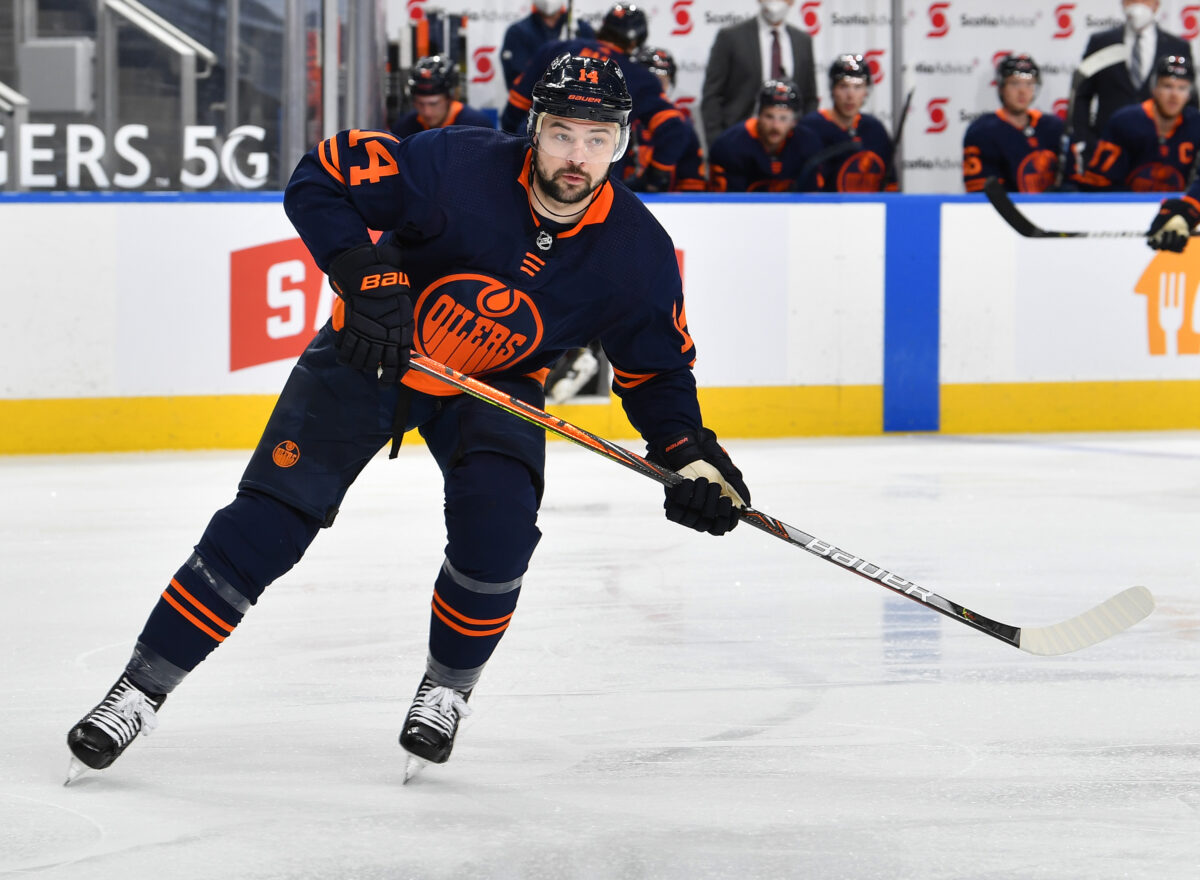Many times bringing in players during free agency is a gamble with the money and term they are asking for and the team is willing to provide. As Edmonton Oilers fans, we’ve seen some bad contracts brought in over the past number of years, including Milan Lucic which still haunts the team.
Many times one-year deals work out the best because the player is playing for their next contract that season, so the incentive is automatically more than if they are in the first year of a multi-year deal. That brings us to the two-year contracts that the Oilers have given out over the past couple of seasons. There are three in particular that stand out over the past year: Kyle Turris, Mike Smith, and Derek Ryan. We are in the midst of all of their contracts, and still, have one year remaining after this season for two of them.
Kyle Turris
Turris was the first of the bad two-year contracts over the past two seasons. After flourishing in Ottawa for parts of seven seasons and then regressing in Nashville, the Oilers decided to give him a fresh start after being bought out. Instead of noticing the decline from scoring 50-plus points in Ottawa to recording 42, 23, and 31 in Nashville, the Oilers gave him multiple years anyway.
I can see why, at a cheaper price ($1.65 AAV (average annual value)), the Oilers would sign him to multiple years in the event that he finds some of the game he had with any of his former teams. 31 points in 62 games wasn’t bad if Turris wasn’t making $6 million a year. But if the Oilers could have gotten even 20 points from Turris each season then his contract would have been worth it. Rather, Turris has played 48 of a total of 91 games since signing and has scored three goals and nine points.

Oilers management also had to think of what role in the lineup they were signing him for. Did they think Turris was going to produce like he did in Ottawa playing nearly 20 minutes a night or even in Nashville playing 15:30 a night? Not with Connor McDavid and Leon Draisaitl with the first two lines on lock. Turris was brought in to play the third line, but on the Oilers, the bottom-six plays significantly less than they do on other teams. Yes, that’s something that may have to be addressed so that the bottom-six can always get into the game and contribute, but that’s a whole different conversation.
Related: Oilers Are in a Better Position Than Other Struggling Good Teams
Both seasons Turris has been under contract, he’s underperformed to the point where other players are getting playing time over him. He played less than half of the games last season and got sent to the taxi squad for good reason. While this season he was placed on waivers before the season started in the off-chance a team would take him. I wouldn’t be surprised if he finds himself waived again this season if the team calls up younger help. He’s playing a bit better in 2021-22, but he’s still in and out of the lineup and not returning next season. The only thing he’s been able to help out at is his specialization in the shootout early in the season. If the Oilers would have signed him to a one-year deal, the experiment would be over and they’d have a free spot for someone else and more money to allocate somewhere they more desperately need.
Mike Smith
Unlike Turris, Smith had himself two seasons in a row where he signed one-year deals with Edmonton. For the most part, these worked out. As I mentioned above, playing for their next contract gives real incentive, especially with 35-plus contracts if he still intends on playing in the NHL.
You may also like:
- Oilers’ Skinner in Line for Vezina Trophy Winning Season
- Oilers: 8 GMs Who Would’ve Been Better Hires Than Stan Bowman
- NHL Rumors: Oilers, Maple Leafs, Capitals, Kuznetsov News
- Edmonton Oilers’ Point Projections for 2024-25
- Edmonton Oilers Name Stan Bowman General Manager
I could’ve seen the Oilers signing Smith to a cheap two-year contract a few seasons ago after he left Calgary, but two years later when he’s that much older and more injury-prone, we’ve all seen how that’s working out. The start of last season should’ve set off alarms, missing a significant chunk of the start of the season. Then this year has just been a disaster. Along with having job security for next season, Smith has started just six games and has been injured three times now. At nearly 40 years of age, that should spell retirement.

In the first one-year deal Smith signed with Edmonton, he increased his save percentage (SV%) from .898 to .902. The following year, 2020-21, he raised it to .923, the second-best in his long career. There wasn’t really much higher he could go from here, and a one-year at his age for a goalie is risky enough, never mind two years. To think his salary went back up from $1.5 million to $2.2 million, doesn’t bode well for the salary cap situation the Oilers are in.
If the Oilers continued the trend of giving Smith one-year deals, they wouldn’t have to have him on the books or worry about his health after this season. Maybe they would even be able to move him because of his lesser cap hit before the year is done, but not on the deal he’s on right now. Regardless of his performance last season, it didn’t warrant a multi-year extension. After this season it would’ve given the Oilers a clean slate to go judge the goalies that may be available and go out and get one to two of them, depending on how they felt about Stuart Skinner.
There are needs that should be addressed throughout the lineup, but the most glaring one is in net. If the Oilers can increase their 25th ranked goals against per game, they would be in a much better position and not lose as many of these close games.
Derek Ryan
Derek Ryan’s two-year deal is better than Smith’s is looking right now because he has been able to stay healthy and play on the third line half of the season. But his numbers aren’t good at all. If you compare his contract and production to Turris’ in his first season with the Oilers, Ryan has now played more games but has the same number of goals without the assists.

Maybe it would be a different conversation if the line of Warren Foegele, Ryan, and Zack Kassian stayed together after their hot start, but Kassian’s injury put a stop to that early. Ryan has the worst plus/minus on the team, but at least he can kill penalties and with a little luck will be able to put up a little more points.
Again the Oilers brought in a veteran with past success who is regressing to try and get a steal. Ryan posted 38 points in 2017-18 and 2018-19, followed by 29 and then just 13 last season. That quick of a decline is concerning, and we’re seeing how it is really playing out. With still another year remaining on his contract, the Oilers may have to bury him in the minors or try to squeeze him into a trade somehow.
Good 1-Year Contracts for the Oilers
While the Oilers have missed on their two-year contracts recently, they have done well with their one-year deals. Players like Tyson Barrie were trying to recover from the worst season of his career in Toronto, while Brandan Perlini was trying to get back into the NHL and Mikko Koskinen was also just coming back to North America from Russia.
Barrie’s first year as an Oiler made perfect sense. Oscar Klefbom was out for the season and the team needed a point-man to play on the power play. Enter Barrie. He did a masterful job, posting the most points in the league by a defenceman in 2020-21 while being paid just $3.75 million. That earned him his current three-year deal that doesn’t look the best, but the first year where he was playing for his next big contract allowed the Oilers’ power play to thrive at the top of the league and fill a much-needed spot. Though he isn’t leading the league in scoring by a defenceman, his two-way game has improved (“One thing that’s going right for the Edmonton Oilers? Tyson Barrie”, Edmonton Journal, 12/21/21).
Devin Shore first signed with Edmonton before last season where he played well enough to earn himself the current two-year deal. 26 years old at the time, he was young enough to still have his career ahead of him and willing to work hard to earn his next deal and stay in the NHL. So far, he’s played well enough to continue to have a spot in the lineup despite not producing the most. He’s versatile and works hard and the bounces should come (“Bottom-six forward Devin Shore will be back with Oilers”, Edmonton Sun, 6/9/21).

Perlini is a player that is young and skilled and was looking to get back in the NHL. A good, inexpensive, low-risk, high-reward signing by the Oilers has started to look better as the season has progressed. Perlini was out of the NHL for a year and has the skill to have a solid NHL career. If it doesn’t work out in Edmonton, he’s a free agent after this season and the Oilers can move on.
There is tons of criticism towards Koskinen, but if you were offered as much money as he was for less than half a season’s work, wouldn’t you take it? In Edmonton, his first season wasn’t horrible, and it was much better when he signed his three-year contract than how it finished, an example of less pressure when the player has job security. The Oilers should’ve played out the year before committing long-term, but Koskinen did have a great year the following year posting a .917 SV%. As a starter, the .906 SV% he posted in his first season with the Oilers won’t do, but as a backup playing significantly less, it is manageable.
The Oilers need to break this trend of signing veterans well past their prime and stick to giving young players a chance like Perlini. They will have more upside and lots of time and money left in their career to play for. The last three two-year deals have hurt the Oilers, so signing anyone over 30 to a one-year prove-it deal should be the new norm in Edmonton, also allowing the roster spots to free up each season with the stocked prospect pool on the horizon.